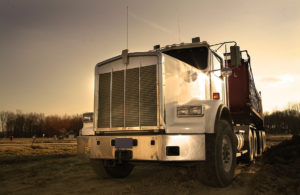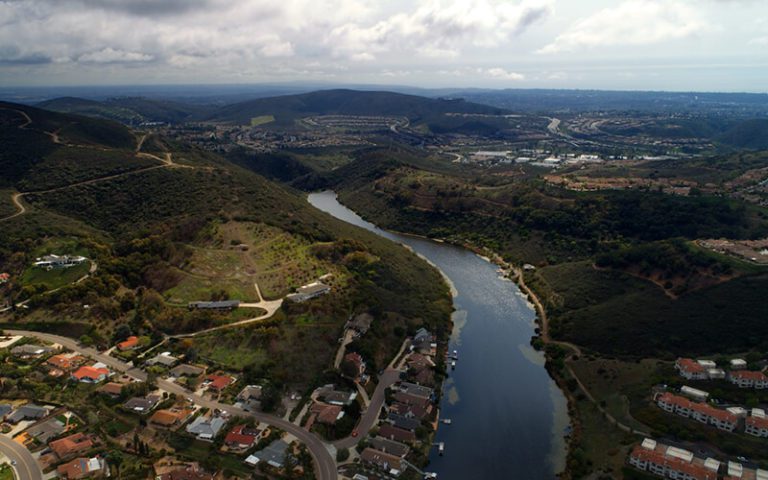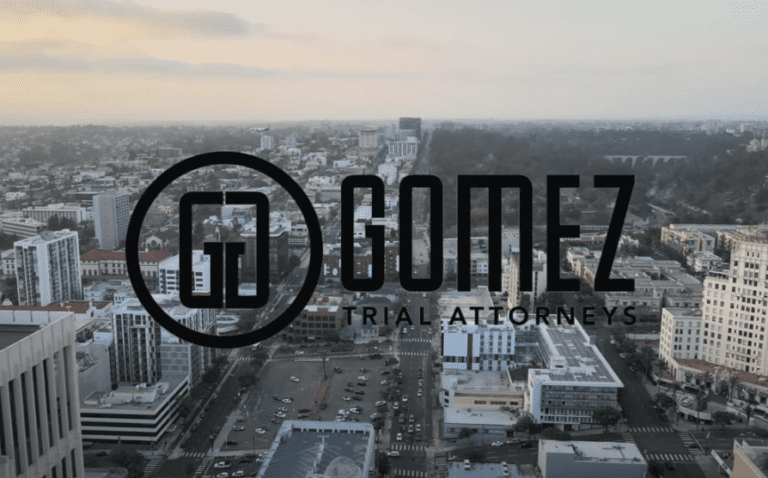 As a motorist, you share the road with all types of vehicles and drivers, but driving alongside a tractor-trailer can make any driver feel intimidated and nervous. Tractor-trailers along highways, interstates, and city streets are often a cause for concern amongst drivers and passengers. Their sheer size combined with busy roads and high speeds can leave many members of the public stressed and fearful when nearing a tractor-trailer on their daily commute.
As a motorist, you share the road with all types of vehicles and drivers, but driving alongside a tractor-trailer can make any driver feel intimidated and nervous. Tractor-trailers along highways, interstates, and city streets are often a cause for concern amongst drivers and passengers. Their sheer size combined with busy roads and high speeds can leave many members of the public stressed and fearful when nearing a tractor-trailer on their daily commute.
Concern for your safety and that of others near tractor-trailers on public roads is a common sentiment and justified by the frequency of accidents caused by this type of vehicle and the often disastrous consequences of these collisions. A tractor-trailer accident is never a minor crash, victims of these accidents can lose their lives or suffer catastrophic injuries. Tractor-trailers are a constant threat to the safety of vehicle occupants while traveling along the roadways of San Diego and surrounding areas.
What Is a Tractor-Trailer?
There are many terms that are used to describe large freight trucks, such as semis, semi-trucks, 18-wheelers, tractor-trailers, semi-trailers, tanker trucks, and big rigs. Tractor-trailers are vehicles used most often in commerce to ship or pull goods and materials. The vehicle itself is composed of two or more distinct components. The main compartment is called a semi-truck or truck tractor; this is the cabin component of the truck where the driver and engine are located. This portion of the truck is self-powered and can travel along roadways on its own. However, in this configuration, it is not considered a tractor-trailer.
The truck tractor is designed to pull or haul freight either on a flatbed or in a container-type trailer. The segment where a shipment is carried is called a semi-trailer, and when combined with the truck tractor, it is commonly referred to as a tractor-trailer.
The size and weight of tractor-trailers can vary depending on the number of trailers being pulled by the semi-truck and the type of cargo loaded. While many semi-trucks can pull more than one trailer, each state enforces regulations as to the length limits and number of trailers allowed to be pulled in their state. The reality is that the longer the tractor-trailer and the heavier the load, the higher the risk to the safety of the public on the road.
In many states across the U.S., especially on the east coast, the hauling of two or more trailers attached to a truck tractor is prohibited. However, in California, rules related to double towing allow this practice. In many parts of the state, semi-trucks are permitted to pull two trailers simultaneously so long as the specified length and weight restrictions in place are adhered to. Astonishingly, individuals and organizations have advocated for even less restrictive measures regarding the length, weight, and number of trailers allowed on California roads, referred to as longer combination vehicles.
Tractor-Trailer Accidents in San Diego and Surrounding Areas
San Diego is a hot spot for tourism and trade. Located along the Pacific coast and near the border of Mexico, the second-largest city in California is a common pit stop for freight trucks delivering shipments across the country. Tractor-trailers are an everyday sight along many of the major routes that pass through San Diego and accidents are not uncommon. There are more than 400 truck accident injury victims each year throughout the streets of San Diego and just under 20 fatalities.
Why Are Tractor-Trailers Considered Dangerous?
Tractor-trailers have a dangerous reputation, but what exactly makes these vehicles more likely to cause destruction and harm to others along the roadways? Several factors contribute to the risk and dangers associated with tractor-trailers on the road.
Dangerous Truck Designs
Tractor-trailers are inherently dangerous due to their massive size and overall design. The reality is that the heavy weight and length of these vehicles make them awkward and difficult to handle even for the most experienced truck drivers. Unexpected hazards and obstacles can occur at any time along interstates, highways, and roads.
While passenger vehicles can react quickly to an impending collision with another vehicle or other obstruction along the road, tractor-trailers take considerable time to maneuver and must change course gradually due to their height, length and weight. Too quick of a reaction and a driver can lose control of the vehicle, while too slow of a reaction can result in a forceful collision and impact on vehicles and objects on the road.
High-Pressure Truck Industry
The commercial trucking industry is one of long travel and tight deadlines. Drivers face mounting pressures from employers to complete shipments faster and more efficiently while also facing internal pressures to earn more money. This combination creates a temptation for companies and drivers to act recklessly in the pursuit of their own interests.
While trucking and transportation is a heavily regulated industry both federally and at the state and local level, the enforcement of rules and regulations can be sporadic and difficult to effectively implement in such a widespread and massive operation. This can lead many drivers and truck companies to continue to break these rules, such as mandatory rest periods and limitations on work hours, in turn putting both the drivers and the public at large at risk of accidents, injuries, and death.
Hazardous Cargo Hauled
The transport of shipments can include a wide range of materials and products, some of which are hazardous and can pose a threat to the health of passing drivers and motorists. Gases, flammable substances, corrosive materials, and other hazardous cargo are transported each day on tractor-trailers. When an accident happens and these materials become disturbed or exposed to the outside world, explosions, fires, and spills can risk the life of vehicle occupants and others present along the roadways.
Critical and Negligent Failures
Trucks require extensive care and maintenance to ensure these massive vehicles remain safe and operable when traveling along the roads and carrying loads of cargo. From the manufacturing of the vehicles themselves to the components and equipment that are used in the operation of the tractor-trailer, many steps and inspections must take place routinely to keep the truck running at its best and safest. When there is a failure in any of the steps of this process, from inspection to routine maintenance or defective products, the risk of an accident increase exponentially.
Lack of On-the-Road Experience
In most cases of tractor-trailer accidents, what precipitates the events leading up to an accident is not the road conditions, the weather, or even the truck itself, but rather, the actions of a truck driver. The operation of a large truck such as a tractor-trailer requires specialized licensing which usually entails an application process with training and examination requirements. However, just because a driver has succeeded in obtaining a commercial driver’s license does not mean the driver is experienced enough to handle the type of truck they are driving. In some unsettling and extreme circumstances, truck companies may even hire truck drivers without the required certifications or licenses for the type of vehicle they are hired to drive.
Ideally, truck drivers will begin their careers with smaller trucks and move up the ranks and size of vehicles as they gain road time and experience. However, this is often not the case in the real world of trucking. Often companies will face immediate increased demands or want to hire workers at lower wages which tends to attract the attention of newbie drivers with little to no experience. Truck companies will often overlook safety concerns to protect their bottom line and will prioritize filling their immediate need to complete jobs as quickly as possible, rather than focus on the proper training and safety requirements of their drivers.
What Are the Most Common Causes of Tractor-Trailer Accidents?
Negligence is the most common cause of tractor-trailer accidents along the roadways. There are many situations where the actions or inaction of a truck driver, truck company, or another party can lead up to the events which result in an accident.
Examples of common negligent causes of tractor-trailer accidents include:
- Tired Drivers – Long hours with limited opportunity to rest and the time pressures imposed by employers and customers will cause many truck drivers to push past their limits at the expense of their health and the public’s safety.
- Driving under the influence – The truck driving profession is a lonely and stressful one. It is not uncommon for drivers to fall to substance abuse of drugs, prescription medications, or alcohol. When drivers engage in this reckless and harmful behavior, they are endangering the lives of anyone sharing the road with them.
- Speeding – Drivers face hard deadlines and open roads which can cause drivers to drive at high speeds. This can be especially problematic in hazardous weather conditions or in areas where road work or damage can increase the risk of an accident.
- Driving while distracted – Truck drivers live on the road for large parts of their daily life. This can mean that many will engage in distracting behaviors such as mobile phone usage, watching entertainment, eating on the road, or other activities that can take their attention away from the traffic that surrounds them.
- Improperly loaded cargo – The process of loading shipments onto a truck can be quite complex. Weight must be distributed evenly and cargo must be secured properly to avoid flying debris or the possibility of a rollover if the weight of cargo suddenly shifts.
- Failure to inspect, maintain or repair – The upkeep of tractor-trailers is tedious and requires thorough record-keeping and attention to detail. Any misstep or failure to complete a step in the process can cause a truck to have a catastrophic failure or damage that contributes to an accident.
Are Tractor-Trailers Associated With More Severe Injuries and Outcomes?
Unfortunately, the massive size of tractor-trailers results in forceful and disastrous impacts when an accident occurs. The momentum combined with the weight of the transport vehicle and cargo can cause severe and sometimes fatal injuries to the occupants of other vehicles. Even with the implementation of the latest safety features and safeguards, passenger vehicles are not made to withstand collisions with tractor-trailers.
The injuries suffered by occupants in tractor-trailer crashes such as underrides, overrides, jack-knife accidents, head-on collisions, and rollovers, are horrific and in many circumstances, the individuals do not survive the accident. The tractor-trailer accident victims that do survive these accidents often face catastrophic injuries that require extensive care and can result in lifelong disabilities. Many victims face significant medical expenses, substantial losses to income, and can even face the loss of their independence, requiring the help of family or caretakers to continue to live their lives.
Catastrophic tractor-trailer injuries include:
- Traumatic brain injuries
- Amputations
- Burns
- Crush injuries
- Multiple fractures and broken bones
- Internal bleeding and damage to organs
What Should You Do if You Are in an Accident With a Tractor-Trailer in San Diego?
If you are the victim of a tractor-trailer accident you likely face uncertainty and the obstacles ahead can overwhelm you. Your first priority after an accident is to address your health concerns and set forth a treatment plan to recover to the best of your ability. As soon as possible after an accident, it is in your best interest to contact a truck accident lawyer to represent you in your claim and potential lawsuit stemming from the accident. If you physically can’t communicate with an attorney, a loved one can contact one on your behalf and discuss your options to protect your legal rights.
If you have lost a loved one due to a tractor-trailer accident you may deserve compensation for your loss. Contact a truck accident lawyer to discuss your case and how they can help you fight for the justice you deserve after the unexpected loss of your family member.







